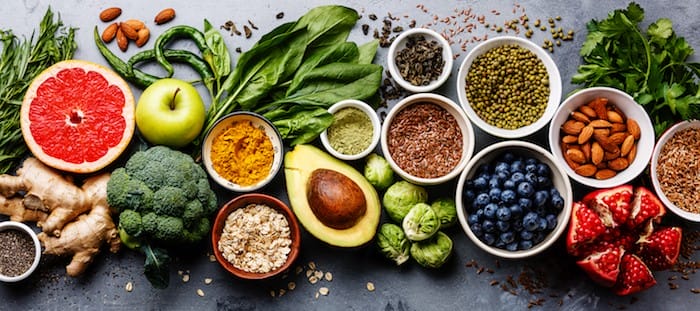Protein is an essential nutrient that is needed for the growth and maintenance of the human body. Including protein in your diet is very important to stay healthy. But, it is not advisable to consume protein in excess as it gets stored as fat. Meat, dairy products, eggs, and fish are some of the dietary sources of protein.
Vegan sources of protein include various kinds of cereals, nuts, beans, peas, and seeds. Protein powder is used by people as a supplement to build up muscles and lose weight. It is also used by the old and ill to meet their daily protein requirement.
The kinds of activities we indulge in decide how much protein we should include in our diet. Those who exert their body too much will require a high amount of protein. That is why gym-goers and athletes are big fans of protein powder. Children, pregnant as well as lactating women, also fall under the high requirement category. Intake of protein is one of the effective ways to recover from malnutrition after an operation.
Bodybuilding is extensively considered a recreational activity in the recent past. Bodybuilding supplements also came into the picture towards the end of the 20th century. Protein powder is one of the most known ones among them. Here are a few things you should know about protein powders if you are planning to consume them:
What and How?
Protein powders are concentrated forms of proteins curated from food items such as eggs, dairy products, cereals, and nuts. They are extracted using heat in the presence of acid or enzymes as catalysts. Protein powders thus produced are called protein concentrates, which can supply 60-80% protein.
This can be converted into protein isolates by removing the 20-40% fat and carbs. The further concentrated form will contain 90-95% protein. Protein isolates on further heating with acid or enzymes convert to protein hydrolysates. In this form, proteins are quickly absorbed by the muscles. Protein powders sometimes also get fortified with vitamins and minerals like calcium.
Who Can Take It?
Protein is the energy source of athletes, weightlifters, and bodybuilders who work hard daily. They require high protein intake as their muscle mass increases, and they sweat heavily. Those working on losing weight should make sure that they consume adequate amounts of protein to not lose their muscle mass.
Protein supplements for those who want to build muscles contain high protein and are more concentrated. And protein powders for those who want to lose weight is not as concentrated. Protein powders can also be taken by those struggling to meet their protein requirement through food alone.
Who Can’t Take It?
People following a balanced diet or a diet already rich in protein need not take any protein supplements. People who have dairy allergy better avoid milk-based protein powder as it may cause gastrointestinal problems.
Though protein requirement is very high for pregnant women, it is not suitable for them to take protein powder as it contains artificial sweeteners that will harm the fetus. Women also require increased protein intake while breastfeeding. It is okay to use protein powder at this time but keep in mind to avoid those with artificial sweeteners, flavours, or preservatives.
Conclusion
Though protein powder is a wonderful option to cope with protein deficiency, there are a few things to keep in mind before and while using it. Along with its benefits, it has some side effects, and you must be aware of that.
Some of the negatives are that they have unbalanced nutrient composition. They are toxic and contain artificial sweeteners. They increase insulin levels. But as a dietary supplement, protein powder remains the popular and preferred choice for all body-conscious folk.







